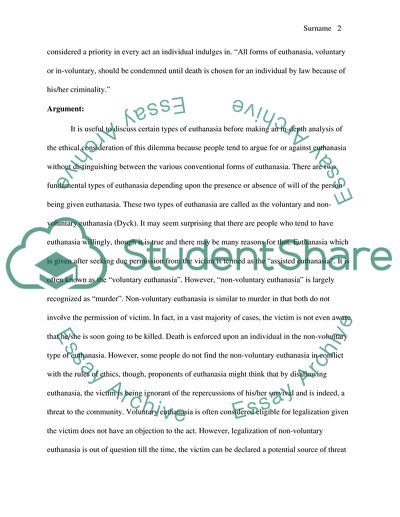Cite this document
(“Ethical Considerations on the End of Life Research Paper”, n.d.)
Ethical Considerations on the End of Life Research Paper. Retrieved from https://studentshare.org/social-science/1573886-argument-for-euthanasia
Ethical Considerations on the End of Life Research Paper. Retrieved from https://studentshare.org/social-science/1573886-argument-for-euthanasia
(Ethical Considerations on the End of Life Research Paper)
Ethical Considerations on the End of Life Research Paper. https://studentshare.org/social-science/1573886-argument-for-euthanasia.
Ethical Considerations on the End of Life Research Paper. https://studentshare.org/social-science/1573886-argument-for-euthanasia.
“Ethical Considerations on the End of Life Research Paper”, n.d. https://studentshare.org/social-science/1573886-argument-for-euthanasia.


